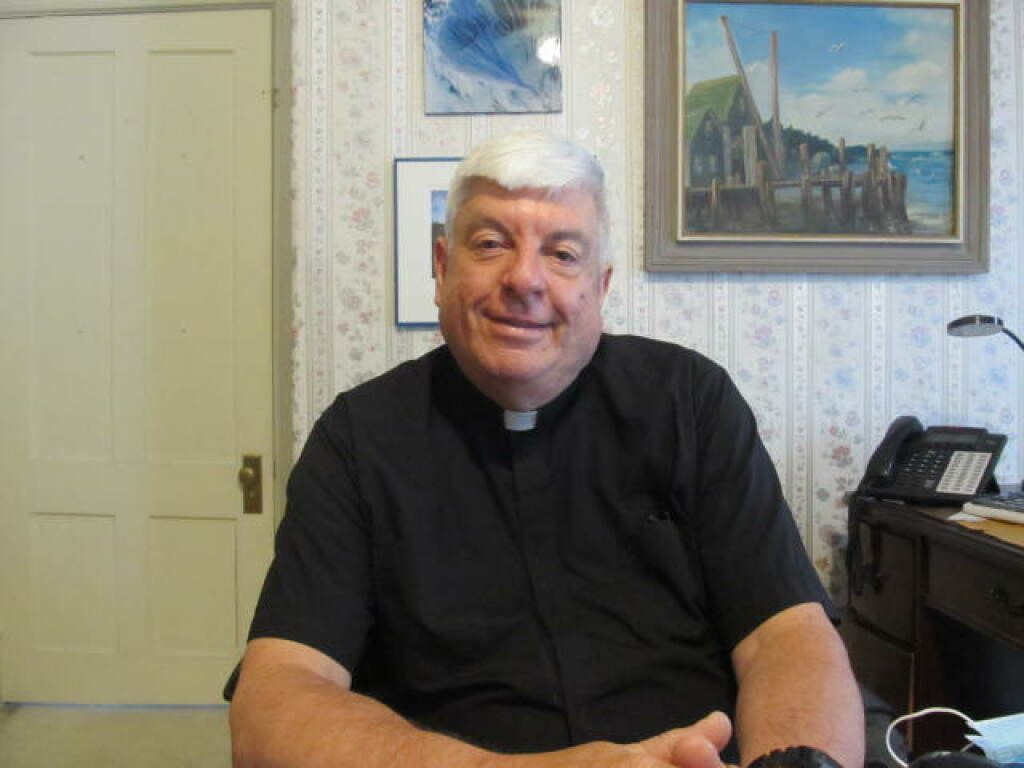 There’s No Going Back!
There’s No Going Back!
Homily for the Twenty-Second Sunday in Ordinary Time
August 30, 2020
Many years ago (1959) there was a novel by Muriel Spark called Memento Mori , which tells of a group of friends, all over the age of sixty-five, who one by one receive anonymous phone calls telling them, “Remember, you must die!” (translation of the Latin title). Not a very cheerful greeting, is it?
The novel, partly serious, partly humorous, tells how different individuals come to terms with the telephone message. Though reactions vary, a common reaction is fright. Still, the anonymous caller often causes the characters to think back over their lives and assess how they have lived—about the good they have done, as well as the not-so-good. In a way, the message they receive about death forces them to come to terms with the meaning of the life they have lived. Somehow death leads them back to life.
You may recall that two Christmases ago I was not able to be with you because I had a very serious infection. Right from the start, the doctors let me know that it was very serious, that I might need an operation, and that I might not make it. As in the case of the novel Memento Mori , I was forced to deal with the question of death…and of life. I made two discoveries about myself: one, that (surprisingly) I was not afraid to die; and two, I was able to say two very important things about the life I had lived up to that point: first, that I am loved by both the people in my life and by God; and second, that I had had a reasonably productive and successful life in that I had tried to do all I could to help people, especially those who were hurting or vulnerable.
In today’s gospel Jesus tells the disciples about the future that lies ahead of him: he is going to be rejected, tortured, humiliated, and that he will die. He also says he will rise again, but that’s so far off everybody’s radar that they don’t hear it. What they do hear is that Jesus, the one who has been identified as the Messiah, the long-awaited Savior, the Son of God, is going to die. And Peter, for one, will have none of it. “God forbid,” he says. “God forbid, Jesus, that any such thing will happen to you.” In Peter’s mind, this just doesn’t compute. The Son of God dying? No way! He wants to go back to the way things were before, to the vision and understanding that he had before: a Son of God with all kinds of power, to heal people, to work miracles, to multiply food for huge crowds, maybe eventually lead an army against the Roman Empire…let’s go back to that, Peter is undoubtedly thinking. Let’s go back to the neat, orderly and normal things just as they were before. But Jesus says there’s no going back! There will not be power and glory in any usual sense. Instead, there will be humility and service, the washing of feet, putting other people first, taking care of the needs of the neediest, and even laying down one’s life if love requires it. There’s no going back to the way things always were, the way we did things before. No…we’re moving ahead to a new Kingdom, and a totally new way of life.
In light of this gospel, the words of Pope Francis, teaching the world at his general audience on August 19 th , become all the more striking. The Holy Father speaks about the world before and after the corona virus pandemic. “The pandemic has exposed the plight of the poor and the great inequality that reigns in the world. And while the virus does not distinguish between people, it has found, in its devastating path, great inequalities and discrimination. And it has exacerbated them!
“The response to the pandemic is therefore twofold. On the one hand, it is essential to find a cure for this small but terrible virus, which has brought the whole world to its knees. On the other, we must also cure a larger virus, that of social injustice, inequality of opportunity, marginalization, and the lack of protection for the weakest. In this twofold response for healing there is a choice that, according to the Gospel, cannot be lacking: the preferential option for the poor. And this is not a political option; nor is it an ideological option, a party option. The preferential option for the poor is at the center of the Gospel. And the first to do this was Jesus….As he was rich, he made himself poor to enrich us. He made himself one of us and for this reason, at the center of the Gospel, at the center of Jesus’ proclamation, there is this option.
“Christ himself, who is God, despoiled himself, making himself similar to men; and he did not choose a life of privilege, but he chose the condition of a servant. He annihilated himself by making himself a servant. He was born into a humble family and worked as a craftsman. At the beginning of his preaching, he announced that in the Kingdom of God the poor are blessed. He stood among the sick, the poor, the excluded, showing them God’s merciful love….This is why Jesus’ followers can be recognized by their closeness to the poor, the little ones, the sick and the imprisoned, the excluded and the forgotten, those without food and clothing. We can read that famous parameter by which we will all be judged; we will all be judged. It is Matthew, chapter 25. This is a key criterion of Christian authenticity. Some mistakenly think this preferential love for the poor is a task for the few, but in reality it is the mission of the Church as a whole…”
So, no, Peter, there’s no going back to the way things were. No going back to the way it was before the crucifixion. No going back to the way it was before the pandemic. We have to die to all that! We have to die to all that was “normal”—the selfishness, the indifference, the grabbing at power, the injustice, the needless suffering of the poor. If we want to live, we must embrace the new normal.
You might also like
Father's Homilies




